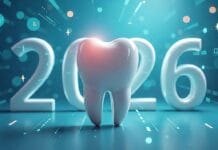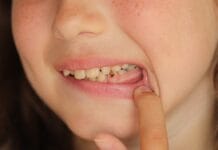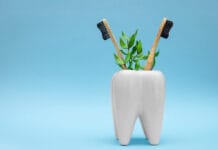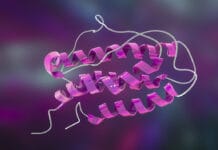1. What percentage of people taking prescription medications also take herbal supplements/alternative medicines?
According to the Centers for Disease Control and Prevention, 36% of U.S. citizens 18 and older use herbal supplements/alternative medicines. When reviewing medical history, it is important to note these supplements and any prescription medications. Patients often omit these from their medical history because they lack the understanding that these supplements can affect treatment outcomes and increase the risk of supplement-drug interactions. Herbal supplements/alternative medicines are not inherently safe when used without a physician's guidance or when paired with some prescription medications.
More Than One-Third of U.S. Adults Use Complementary and Alternative Medicine, According to New Government Survey. (2009, October 6). Centers for Disease Control and Prevention. https://www.cdc.gov/nchs/pressroom/04news/adultsmedicine.htm
2. The top-selling herbal supplement in the U.S. is horehound. This supplement can affect glucose levels, and patients taking it should have their glucose monitored closely, especially patients with diabetes.
The most-sold herbal supplement in the U.S. is horehound (marrubium), scientific name: Marrubium vulgare. Due to the higher selling rate than other supplements, dental professionals may often encounter patients taking this supplement.1
Horehound interferes with glucose levels and, if taken in conjunction with prescribed diabetes medications, can cause a drop in glucose levels that could lead to hypoglycemia. Due to the lack of regulation with many over-the-counter supplements, it is hard to determine the dose the patient may receive when taking the supplement. Therefore, it is imperative to know if your patient is taking horehound supplements to be better prepared to manage the patient if they start to experience hypoglycemia.2,3
1. Top Selling Herbal Products in the U.S. (n.d.). The University of Texas at El Paso. https://www.utep.edu/herbal-safety/how-popular-is-herbal-medicine-in-the-us.html
2. Boudjelal, A., Henchiri, C., Siracusa, et al. Compositional Analysis and In Vivo Anti-diabetic Activity of Wild Algerian Marrubium vulgare L. Infusion. Fitoterapia. 2012; 83(2): 286-292. https://doi.org/10.1016/j.fitote.2011.11.005
3. Dietary Supplement Ingredient Directory. (2023, March 6). U.S. Food and Drug Administration. https://www.fda.gov/food/dietary-supplements/dietary-supplement-products-ingredients
3. Which herbal supplement is contraindicated when taking diazepam, dexamethasone, prednisone, and/or methylprednisolone?
Echinacea can increase drug levels that are metabolized by the CYP1A2 and CYP3A4 enzymes in the liver. Drugs that are metabolized by these enzymes include diazepam, amitriptyline, haloperidol, olanzapine, efavirenz, nevirapine, and acetaminophen. Echinacea can also interfere with immunosuppression therapy due to its immunostimulant activity.
Awortwe, C., Manda, V.K., Avonto, C., et al. Echinacea purpurea Up-regulates CYP1A2, CYP3A4 and MDR1 Gene Expression by Activation of Pregnane X Receptor Pathway. Xenobiotica. 2015; 45(3): 218-229. https://doi.org/10.3109/00498254.2014.973930
4. Elderberry is used to treat the flu, as a laxative, and as a means of pain control. It has no known drug interactions making it inherently safe to take with other prescription medications.
Most people utilize elderberry for its reported effects on colds and flu, but it has also been used for constipation, toothaches, and high cholesterol.1 Due to the possible immunostimulant activity of elderberry, theoretically, drug interactions with immunosuppressant medications and corticosteroids could be an issue.2
This may be a concern in a dental setting as someone taking elderberry to manage tooth pain may also be prescribed steroids post-root canal therapy. Therefore, it is important to advise patients of the possible herbal supplement-drug interaction and the reduced effectiveness that could result if the patient continues to take both medications concurrently.
1. Is Elderberry Really an Effective Cold and Flu Cure? (2021, October 25). Cleveland Clinic. https://health.clevelandclinic.org/is-elderberry-really-an-effective-cold-and-flu-cure/
2. Assessment Report on Sambucus nigra L., Fructus. (2014, January 28). European Medicines Agency. https://www.ema.europa.eu/en/documents/herbal-report/final-assessment-report-sambucus-nigra-l-fructus_en.pdf
5. Which of the following supplements interferes with antiplatelet, anticoagulant, sedative, immunosuppression therapy, and antibiotic drugs?
Turmeric interferes with antiplatelet and anticoagulant drugs due to its ability to improve the absorption of the drug causing higher plasma concentrations.1 Turmeric interferes with the CYP3A4 enzyme in the liver, which can cause drugs that are metabolized by this enzyme to have increased serum levels of the drug for a longer period. Drugs that are metabolized by this enzyme include alprazolam, calcium channel blockers, erythromycin, lovastatin, verapamil, triazolam, and midazolam, among others.2,3
1. Liu, A.C., Zhao, L.X., Lou, H.X. Curcumin Alters the Pharmacokinetics of Warfarin and Clopidogrel in Wistar Rats but Has No Effect on Anticoagulation or Antiplatelet Aggregation. Planta Medica. 2013; 79(11): 971-977. https://doi.org/10.1055/s-0032-1328652
2. Ogu, C.C., Maxa, J.L. Drug Interactions due to Cytochrome P450. Baylor University Medical Center Proceedings. 2000; 13(4): 421-423. https://doi.org/10.1080/08998280.2000.11927719
3. Drug Development and Drug Interactions: Table of Substrates, Inhibitors, and Inducers. (2022, August 24). U.S. Food and Drug Administration. https://www.fda.gov/drugs/drug-interactions-labeling/drug-development-and-drug-interactions-table-substrates-inhibitors-and-inducers
6. Which of the following medications is contraindicated for patients taking valerian?
Valerian, as with other supplements mentioned, can slow the metabolism of certain drugs that are metabolized in the liver. This can cause plasma serum levels of the drug to be higher than anticipated and lead to adverse events. Additionally, valerian can interfere with drugs used in general anesthesia. If your practice offers general anesthesia, be sure to get a list of ALL herbal supplements as well as OTC medications and prescription drugs to reduce the risk of an adverse event.
Valerian. (n.d.). Mount Sinai. https://www.mountsinai.org/health-library/herb/valerian
7. Ginger supplements can cause a potential increase in bleeding.
Multiple herbal supplements can potentially increase the risk of bleeding, including, but not limited to, aloe, cranberry, feverfew, garlic, ginger, ginkgo, and meadowsweet. These supplements are important to note in the patient's medical history in the event they need a tooth extracted, placement of an implant, or any other surgical procedure. It may be necessary to lower the dose or stop taking the supplement for several days prior to treatment.
Abebe W. Review of Herbal Medications with the Potential to Cause Bleeding: Dental Implications, and Risk Prediction and Prevention Avenues. EPMA Journal. 2019; 10: 51-64. https://doi.org/10.1007/s13167-018-0158-2








